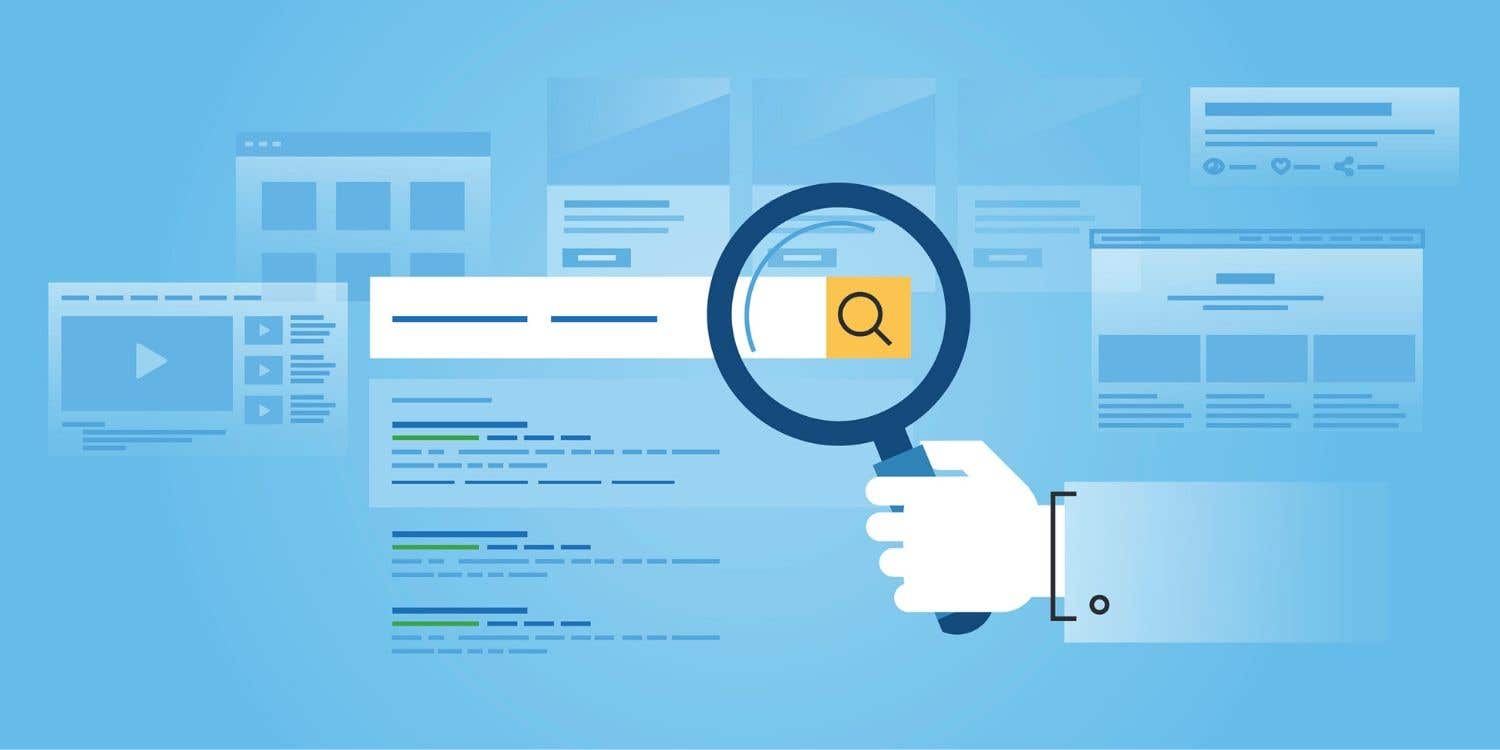Chatea con Ava - Tu consultor de negocios IA
¡Hola, soy Ava, tu guía de IA para potenciar tu negocio!
Ya sea que dirijas una empresa o sueñes con iniciar una, estoy aquí para hacer realidad tu visión gracias a los freelancers que usan IA. Comparte los objetivos de tu negocio y juntos crearemos un proyecto en los que nuestros talentosos freelancers puedan ofertar. ¡Hagamos realidad tu visión!
Tengo un negocio
Estoy comenzando un negocio
Algo salió mal al enviar la conversación a tu correo electrónico. Por favor, intenta de nuevo más tarde.
Solo puedes guardar tu conversación una vez por hora. Por favor, intenta de nuevo más tarde.
Tu conversación es demasiado corta. Sigue chateando con Ava para poder guardar.
Internet Marketing
We explain what internet marketing is, why it is crucial for your business and how you can create a killer digital marketing strategy.
20 abr 2022 • Lectura de 20 minutos
Actualizado el 6 mar 2023 por Lee J.

Writer and Editor
Falló el copiado al portapapeles. Intenta de nuevo después de ajustar tus permisos.
Copiado al portapapeles.

Fact | Description |
|---|---|
Fact | Description |
Fact | Description |
Fact | Description |
Fact | Description |
Fact | Description |
A successful internet marketing strategy will see you extend your reach, build brand loyalty and increase conversions.
Marketing has always been about meeting your target audience where they are, but traditional marketing was all about selling. The internet has turned that on its head. Today, online marketing is about creating trust, positioning yourself or your brand as an authority in your industry and guiding customers on their buyer journey.
Here, we explain what internet marketing is, why it is crucial for your business and how you can create a killer digital marketing strategy that drives traffic with buying intent to your website.
What is internet marketing?
Internet marketing is an umbrella term for the myriad ways brands connect with and convert their audience online. Digital marketers use it to promote products and services in a way that targets their intended audience. It includes:
But it’s far more than simply posting content online.
Your internet marketing campaign must be consistent and on-brand to ensure it feeds into your wider business and sales goals. It requires a well-planned strategy that identifies who your audience are, which digital spaces they inhabit, and what type of content engages in them.
Many businesses see hiring an internet marketing specialist as the best way to design and implement a digital marketing strategy. Others find freelance social media marketers or bloggers to take care of internet marketing tasks that take a lot of time or require particular expertise. And some choose to take care of all their own digital marketing.
Which is right for you will depend on the size of your organization, target market, budget and the time you have available to dedicate to marketing your business online.
But with 89% of B2B purchases and 40% of all product searches globally starting with internet search engines, it is clear that internet marketing is the future.
The benefits of internet marketing
Access to a global market. Over 4.6 billion people use the internet every day. That’s over 57% of the global population So, the first and most obvious benefit is the opportunity to tap into a vast market.
Easy to track results. There are plenty of analytics tools available to help you monitor your internet marketing performance statistics. Some, like Google Analytics , are completely free to use.
The four I’s of internet marketing
The four I’s of internet marketing are:
Interactive
Two-way communication is a great way to build trust. Sure, you want to get your blogs, videos and socials out there for all to see, but be mindful that consumers may want to communicate with you too. That communication could be a Facebook reaction, a comment on your blog or a complaint about something.
In any event, you can instantly gauge the opinion of your target market and create a positive user experience (UX) by replying in good time and showing you care.
Making your internet marketing interactive shows you value your customers' needs.
Informative
Ok, sometimes users will share a joke, meme or video you posted. And there is a place in your marketing mix for ‘entertainment with a purpose’. But be careful not to bombard your audience with meaningless content. And use this type of content sparingly. A few on-brand jokes are fine on Twitter or Instagram, but blogs or case studies need to be relevant and informative.
Content that answers a users’ question will encourage them to come back again next time they have a similar query. It builds trust and shows that you are knowledgeable. Keep in mind that there is a marketing element to them and include opportunities to collect data (eg email addresses or mobile numbers) for future marketing efforts or links to landing or sales pages. But remember that internet marketing is an ongoing process.
Don’t be overly ‘salesy’. Do focus on high quality content. It’s always worth keeping in mind that at the forefront of your consumer's mind are their own needs. Their focus is not on your product or service per se, but what it can do for them.
Involve
Don’t just wait for consumers to contact you – reach out to them. The internet provides numerous opportunities for engagement that can help connect you with your audience.
Ask for feedback on blogs and videos, encourage followers to get involved in hashtag games or with online polls to generate conversation or involve consumers in selecting questions for a podcast.
The opportunities to get people engaging with your digital marketing content are endless and will be largely determined by your own knowledge of your audience. The important thing is that you are prepared to try things out and see what works. If it makes you feel more confident, speak to a digital marketing specialist before getting started with an internet marketing campaign. But remember, provided it is not controversial, content that fails to land will simply disappear into the ether and not be in any way damaging so feel free to be a little experimental and come up with unique ideas that will help you stand out from the competition.
Integrated
Your TikTok audience is likely to be different from your Facebook audience. Indeed, it may be that one (or neither) of those platforms are relevant to your internet marketing strategy.
There is no obligation for you to have a presence on every social media platform going. If your target audience doesn’t use Instagram, there is no point in you wasting time and effort posting content on it.
But even the most basic of internet marketing strategies will require more than one medium and it’s vital that the disparate parts of your digital marketing come together to form one consistent brand message.
Different types of internet marketing
Each type of internet marketing serves a different purpose:
Website
Brand identity starts with your website. It is the fulcrum of all your internet marketing efforts and must provide the UX that consumers want. Fail to deliver with your website, and everything you did to attract someone to it becomes pointless.
Before starting a digital marketing campaign, audit your website and make any changes required to make sure it complements your promotional efforts.
Is it up to date?
Have you checked it for content errors? It’s not advisable to check your own writing for spelling and grammar errors so consider finding a freelance proofreader to check it over and rectify any mistakes.
Is the color palette and logo consistent with your current brand image?
Is your site easy to navigate?
Is it SEO optimized? This is one of the most fundamental aspects of internet marketing.
You can optimize SEO by:
For a full SEO audit and optimization, you will need the services of an SEO professional.
Blogging
Blogs are a great way to create a bank of meaningful content on your site. They provide an opportunity to add fresh content to your site and encourage interaction. You can also use them to help you rank highly for a wider choice of SEO keywords to help drive more organic traffic to your site.
Blogging requires you to pre-empt problems your target customers may face. The key is to focus each blog you write on one aspect of what you do and get into the details of it. Blogs should resonate with readers by describing a specific pain point and subtly explaining why the features and benefits of your brand make it the ideal solution.
Blogging is a fantastic tool for improving SEO but it takes time to craft a piece that connects with your audience, includes relevant stats and links, and drives conversion.
If writing is not your forte or you don’t have time to create meaningful blog content, you can hire a freelance blog writer or copywriter.
Source: Unsplash
Social media marketing
But social media marketing encompasses a plethora of platforms, and each has its own demographic. These are a few of the most popular sites for social media marketing:
Facebook | Instagram | TikTok | Twitter | Pinterest | Snapchat | YouTube | LinkedIn | |
Active monthly users | 2.91 billion | 2 billion | 1 billion | 211 million | 431 million | 319 million | 2 billion+ | 810 million |
Main age group | 25-34 | 18-34 | 10-19 | 18-29 | 50-64 | 15-25 | 15-35 | 25-34 |
Gender split | Female 43% Male 57% | Female 48.6% Male 51.4% | Female 61% Male 39% | Female 38% Male 62% | Female 78% Male 22% | Female 54.4% Male 44.6% | Female 46% Male 54% | Female 48% Male 52% |
The most appropriate platform for your social media marketing campaign will largely depend on our target demographic but it pays to carry out some industry specific research before making your decision.
This encompasses everything from Tweets and Instagram posts, to member-only Facebook groups that allow users to chat and communicate with you and with like minded people (possibly from all over the world).
Again, how you use social media is up to you and will be decided by what your target market expects from you, so you need at least a working knowledge of your audience and the various social media sites available to you.
Use social media to post links to your web pages or to articles or blogs you publish. And include a link to your home page in your social media bios. But don’t forget to use other internet marketing tools to attract people to follow you on social media.
Include buttons that link to your socials on:
Email marketing
Email marketing is about nurturing relationships with those most likely to buy and is still one of the most successful forms of internet marketing.
You can capture emails at point of sale, when offering a freebie (perhaps an e-book) in exchange for contact details, or when consumers sign up to receive a regular newsletter or special offer. However you obtain email addresses, it’s important you use them and don’t just leave them festering on a spreadsheet doing nothing.
It is a great way to check-in with customers and keep your brand at the forefront of their minds for when they are ready to buy.
Source: Unsplash
Email marketing includes:
Search engine marketing
Google continues to lead the way in search engine marketing. It boasts 94.88% of mobile searches and 86.19% of desktop searches worldwide. So, your efforts should be focused on appealing to your target market and to Google’s crawler bots.
SEO is a mainstay of search engine marketing and helps with organic reach, but there are also opportunities to pay to rank highly on SERPS.
Paid advertising on Google is generally the preserve of major corporations with smaller businesses best advised to hire an SEO specialist to audit and improve search engine rankings.
Case studies
Case studies are similar to blogs and online articles but they focus on how you helped a particular client with a problem they faced. This can be an incredibly impactive form of online marketing as it demonstrates your skills and is validated by the client.
A case study begins by describing the issue your client was faced with and why this was holding them back or was otherwise detrimental to their business. It’s usually best to use quotes from the client at this stage as the first person speech is more likely to resonate with your audience. It also helps to highlight that the problem existed before your intervention.
Having established the major issue, move on to how you tackled it. This section of your case study should focus on the steps you took to not only understand the problem but to identify the underlying reasons for it. It’s not uncommon for you to be blasé about your role in honing in on the nub of the issue as it may be something you do every day. For example, an SEO expert may be able to read a short excerpt of web content and spot some basic errors straight away. Don’t play this down. The fact that your knowledge and experience allows you to identify issues almost immediately shouldn’t detract from you describing your review as ‘thorough’ or ‘comprehensive’. If you say you ‘had a quick look’ you will not inspire confidence in your approach.
Source: Unsplash
Next, explain the steps you took to rectify the situation and why you chose them. Remember to keep the focus on the topic of the blog and refer back to your description of the original problem as you describe the solution.
Your case study should conclude with more words from your client. This is the endorsement of your work and direct quotes from the owner of the business you carried out the work for are far more powerful than anything you can say about yourself.
When asking a client to participate, offer to add links to their services and add an ‘About the company’ section at the end to briefly describe what they do. This will help both websites with SEO and may help persuade them to publicly approve your work.
Online press releases
Online press releases released by companies such as Newswire have a slightly different feel from a blog that goes out on your own website. They can be highly targeted and allow you to reach an existing audience with interest in what you do.
A press release gives you an opportunity to use your own words, or those of another senior figure in your organisation, to complement your brand values and speak directly to your audience.
Usual SEO rules apply but there is a specific style to press releases that makes them most suitable if you have a writing or journalistic background. If this is not you, finding a professional writer is your best option for a press release that hits the brief.
Online ads
Online ads appear on lots of websites, blogs and social media platforms. They are usually targeted using algorithms and work on a pay-per-click basis so you only pay when consumers choose to visit your site.
There is intense competition when it comes to online ads and you need to remember that your brand very often appears in front of a user when they are searching for something else or just scrolling on their phone.
However, it can be a very cost-effective method of internet marketing.
The key to success with online ads is creating something that is visually appealing and conveys your key message in just a few words or images. If you’re not a creative person or don’t have a natural flair for design, your best bet may be to hire a freelance graphic designer to turn your idea into something that will attract the eye of your audience and drive them to your site.
Infographics
Infographics are effective across a variety of media. They include graphs, charts, images, tables etc and are a great way to highlight key information or data in a way that is eye-catching and easy to understand.
Think of infographics like the headline in a newspaper. They draw people in and clearly state what the main content is about but don’t give away too much. They are often used in social media to encourage users to click on a link to a blog or web page.
But they can also be invaluable when writing web pages or long form content as they help to break up the text. A wall of text can be intimidating for readers and make it difficult for them to scan the page for the information they want. Infographics help make skim reading easier and provide an enhanced user experience.
Podcasts
Podcasts provide a platform to talk about topics that interest your audience and can be a powerful tool in B2B marketing. Like other forms of internet marketing, they allow you to both advertise your product or service and talk more broadly about your industry.
It is a form of on-the-go advertising that your target market can consume anywhere at any time.
If you can position yourself as a thought leader or innovator in your sector (or align yourself with those who have already earned that status) you add credibility to your brand and increase your reach.
If you choose to get into podcast marketing, you will need to think about how to make yours stand out. There are more than 2 million podcasts registered with Google so getting yours noticed is not easy. But with the number of podcast users on the increase, getting in now could help you steal a march on your competition.
Source: Unsplash
High quality content, interesting subjects and an engaging script are crucial to getting your podcast right. As an expert in your field, you may think you can simply turn on the mic and talk – but that would be a huge mistake.
Public speaking of any kind is an art form and without a carefully crafted script that has been designed to pose a problem and present your product as the solution, your podcast is likely to sound disjointed, miss vital information and be filled with awkward pauses that last seconds but feel like hours.
To get it right, you will either need to use members of your existing team who are both competent and confident in podcast script writing, producing and editing, or hire a freelance video editor to help you polish it and get it looking professional before you post it.
If you don’t want to record your own podcast, you might want to consider looking for opportunities to appear on somebody else’s to help elevate your status, build your brand and promote your services. Alternatively, look for opportunities to place adverts on popular podcasts that your target audience listens to.
If you do record a podcast, be sure to promote it across all channels.
Videos
Video marketing is popular across all social media sites and is commonplace on sites such as YouTube. You can have your own channel that users subscribe to or place ads at the beginning of videos.
Ads that appear before viewers see their selected video are targeted to users but have a poor engagement rate as they are competing with content the person has chosen to watch.
Once again, you face the issue of stiff competition just to get noticed. But if you do stand out, one video could potentially be seen by millions of people.
Videos are popular with consumers as they tend not to take up too much time. And the stats around video marketing show you just how highly regarded it is among users:
Source: Unsplash
In such a competitive vertical, the first thing you need to do is get noticed. And that means editing your video professionally to ensure that what appears on your target market’s feed, draws them in and gets them to click on the video.
And that’s just the first step. Once you have their attention, your video needs to hold it. It must be both entertaining and informative. That doesn’t mean you have to go into great detail about your business in every video. You may simply want to build brand awareness with a short comedy video or montage accompanied by music. The important thing is that viewers align the video with your brand and see it as either establishing or confirming your authority and trustworthiness.
Before entering into the field of video marketing, make sure you have established a clear brand identity and have an idea of how your videos will complement and enhance it. This is a long term commitment. The occasional video here and there will do nothing to help promote your brand.
Think about how you will generate ideas, who will write the scripts, and who will take part in the production, recording and editing. If necessary, you can hire a freelance writer or editor to help with scripts and video editors to help produce professional videos.
Make sure you get your social media marketing manager on board too. They will take responsibility for putting your video in front of the right people to help drive conversions.
Affiliate marketing
Affiliate marketing is the process of using ‘affiliates’ (third party websites) to sell to your target market.
This is one of the most popular forms of internet marketing as you can reach a ready-made audience without having to build up your own following.
Affiliate marketing sites write articles and listicles that include links to your website or product pages and encourage users to divert to your site.
Choosing the right affiliate marketer allows you to leverage their authority but it does mean putting yourself directly up against your competitors.
Influencer marketing
Similar to affiliate marketing, influencer marketing relies on third parties who generally use social media to promote your products. It can be expensive and there is little guarantee that your product will stand out as the influencer will promote multiple products at one time.
Not all influencers are celebrities. Indeed, studies suggest that non-celebrity influencers with smaller follower numbers are deemed more reliable and have considerably higher conversion rates.
Influencer marketing is most successful when targeting niche audiences.
Source: Unsplash
Streaming TV marketing
The popularity of streaming services has opened a new avenue for internet marketing. Streaming TV marketing is similar to traditional TV advertising but it uses the targeting capabilities of streaming services to put your ads in front of the viewers most likely to match your buyer profile.
Creating an internet marketing strategy
No doubt you have a good understanding of your target audience. But do you know which social media sites they use? Are you aware of the Google search terms they use when looking for the product or service you provide? Have you taken steps to find out what topics are currently trending within your sector?
These are all things you need to determine before you get started with implementing your internet marketing strategy.
Source: Unsplash
Here’s how to plan and implement a successful digital marketing campaign:
Research which social media sites your target market is most active on
If you have a buyer persona, a Google search will quickly identify which sites your demographic uses. Don’t limit your campaign to just one. Make a note of all channels that look promising.
If you don’t have a buyer persona, create one. Think about your target customer:
Answering these and any other relevant questions you can think of will enable you to create a typical buyer persona that will make it much easier to target your internet marketing appropriately.
Use Google Keyword Planner or a similar keyword research tool to find out what your audience is searching for
You may think you know your users’ preferred search terms but without keyword research, you could be missing a trick. By entering the search terms you would expect to see into a keyword research tool, you will be offered synonyms and other popular search terms on the same topic which enable you to attract more interest, prevent your content becoming repetitive and avoid being ‘penalized’ by Google crawler bots for ‘keyword stuffing’.
Brainstorm for ideas
Sometimes, your keyword research will throw up some obvious ideas for topics and titles. If you can, dissect these even further. The more specific you can make your ideas, the more likely you are to connect with users searching for particular keyword combinations. For example, ‘Cleaners in New York’ returns 46 million web pages. ‘Carpet cleaners in New York’ returns 14 million – instantly increasing your likelihood of ranking on the first page by 3 times.
The key is to find the right balance between popular keywords and your unique selling point. You don’t need to cram everything into one blog. Spreading your portfolio of services across multiple blogs means you can rank highly for different sets of keywords and provides opportunities to provide links between your blogs and web pages. This increases your reach, helps establish your authority and boosts your on-site SEO.
Competitor research
Find out what your competitors are posting and how successful it is. Don’t copy what they do (you won’t fool search engines) but have a look at what they do well and where you think their internet marketing is not up to scratch.
Have a look at what type of content gains most engagement and bear this in mind when creating your own content.
Establish your goals
You will only know how successful your internet marketing is if you have a goal to measure it against. You should have an overall digital marketing strategy that each individual element or campaign feeds into.
You goal might be:
Naturally, your focus is always on increasing sales. But some aspects of your internet marketing will be more overtly sales driven than others.
Source: Unsplash
The key is to have clear goals that you are working towards and make sure the disparate elements of your strategy are in alignment.
Establish your budget
One of the great advantages of internet marketing is that it is possible to be successful on a low budget. Once you know what you want to achieve and how much your budget is, it is time to get creative.
Are there innovative ways that you can use your social media channels or blog to engage your audience at little or no cost?
Could you use special offers to increase your customer base? An e-book, for example, can demonstrate your knowledge, provide something valuable to your target customer free of charge and provide you with an email address to send it to. You can write the e-book yourself or find a freelance writer to save you time and make sure the end product is professional and error-free.
Create and publish your content
Get it made and get it posted:
Analyze your results
Analytics tools are crucial to understanding what works and what doesn’t. The more knowledge you have about how each element of your internet marketing campaign is working, and what is failing to land with your audience, the better position you are in to refine it and make it more engaging.
Source: Unsplash
Key takeaways
However you structure your internet marketing strategy it must be:
Always remember that internet marketing is a long-term commitment. You might make changes to the style of your content or choice of platforms, but the fundamental purpose of internet marketing must remain:
Attracting loyal customers
Hiring a freelance internet marketing specialist
There are many reasons why you might need to hire a freelance internet marketing specialist:
In any event, you can find a plethora of internet marketing specialists on Freelancer.com. Some have overall expertise, while others have specialist skills in one aspect of digital marketing.
The Freelancer platform is easy to use and allows you to search thousands of freelancers by skill set or location so you can find the right fit for your brand.
How much does it cost to hire a freelance internet marketing specialist?
It very much depends on your needs and the level of experience you are looking for from your freelancer. When you post a project on Freelancer.com you can set your budget or, if you’re not sure what the going rate is, you can select the guide price.
You are not obliged to accept any offer so you can accept and assess bids, and chat to the best freelancers from around the world before deciding whether to go ahead.
Find a freelance internet marketer today and put your brand in front of the right people, in the right place, at the right time.
Cuéntanos qué trabajo necesitas encargar
Ingresa el nombre de tu proyecto
Historias relacionadas
Habla con uno de nuestros Copilotos técnicos para que te ayude con tu proyecto
Artículos recomendados solo para ti

How to hire a freelance writer and build an effective content marketing strategy. Content is your most profitable marketing investment, make it count.
12 min read

Learn the complete end-to-end process of building a successful website for your business in our comprehensive guide
19 min read

Search engine marketing can be a great advertising channel for your business, or a colossal waste of money. The difference lies in how it's executed.
8 min read

Virtual assistants are affordable, and they can add serious value to your business. Find out what to look for when hiring a virtual assistant
7 min read
¡Gracias! Te hemos enviado un enlace para reclamar tu crédito gratuito.
Algo salió mal al enviar tu correo electrónico. Por favor, intenta de nuevo.
Cargando visualización previa
Permiso concedido para Geolocalización.
Tu sesión de acceso ha expirado y has sido desconectado. Por favor, inica sesión nuevamente.





